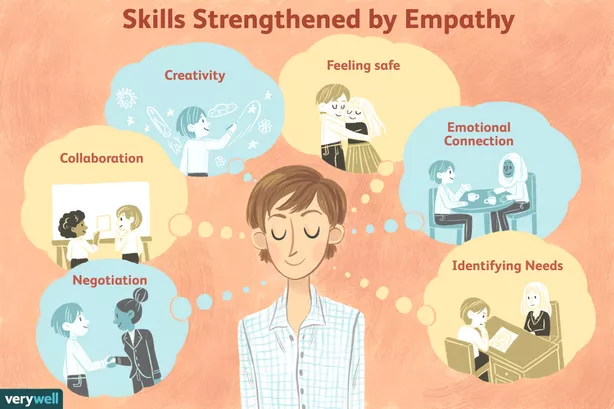Perception enables a perceiver to select, organise and interpret a stimulus in a seemingly meaningful manner. The factors influencing perception can be categorised as factors in the perceiver, factors in the situation, and the target. The factors must know how to differentiate between negative and positive attitudes in all cases besides figuring out the targets based on the personality traits and preparing a rapprochement based on them.
An individual’s perception involves the selection, organisation and interpretation of stimulants into something meaningful and coherent that is acceptable to them as well as others.
The following are the factors influencing perception:
- Factors related to the perceiver
- Factors related to the target
- Factors related to the situation
Now let’s take a closer look at each factor:
- Factors related to the perceiver
Your motives and needs heavily influence the way you perceive things. Feelings of uneasiness or tension arise when you think you lack something or need something. Unfulfilled needs or reasons may also influence your perceptions. Wishful thinking is a means of satisfying desires in a non-existent fantasy world when one does not receive the fulfilment of their desires. When this happens, you only see things that agree with your preconceived notions. Furthermore, your motivation is another of the factors influencing perception as well. For instance, a deceitful person attributes the same traits to others.
In simple words, self-concept refers to how you see yourself in relation to the people around you and the circumstances you find yourself in. The more you know about yourself, the better you can see the world around you. Confident people, for example, tend to regard others as friendly and welcoming. On the other hand, insecure people tend to focus on the negative aspects of others. A good self-concept goes hand in hand with accurate self-perception.
The way you perceive things is often influenced by your experiences and expectations. Your present perspective is shaped by your past experiences. For instance, if you have been duped by a few acquaintances in the past, you may remain sceptical of any new friendships you may form in the future.
Your current emotional and psychological condition can have a significant impact on how you interpret events. When you are depressed, you are more likely to see things differently than when you are cheerful. Similarly, if you are terrified of snakes, you may mistakenly believe that a rope tucked under your bed is a snake.
Perception is heavily influenced by a person’s ideas. People create their own reality based on their perception, not what actually exists. As a general rule, the individual suppresses stimuli in order to protect his pre-existing views from being challenged.
Your own expectations influence your impression of yourself. The anticipation of a specific action on the part of another person is what you mean when you talk about expectations. The non-technical personnel, for example, are expected not to know a product’s technical characteristics.
- Factors related to the target
Observing a person’s characteristics can influence what is perceived. People generate opinions about others based on people’s physical characteristics, such as their appearance, age, gender, communication style, as well as their personality traits and other attributes and behaviours, despite the fact that this goes against logic and objectivity. Loud people, for example, are more likely to be noticed in a crowd than quiet ones.
People, objects, and occurrences that are similar tend to be clustered together. Employees in business attire are perceived as higher-ranking, while those in casual attire are viewed as lower-ranking employees by their peers and co-workers.
Your impression of others is influenced by how you communicate verbally and nonverbally. Your choice of words and the accuracy with which you speak can convey a lot about your intelligence and sophistication. For instance, your mood is conveyed through the tone of your voice. Likewise, one can gauge your intelligence by the depth of your discussion and the topics you choose to discuss. Similarly, your body language or expressive behaviour, such as how you sit or move your eyes, can tell whether you are apprehensive or confident.
- Social stature, occupation, and wealth
A person’s social stature, occupation, and wealth also affect perception. When you meet a principal of a school where your child is enrolled, a Supreme Court judge, or a famous cricketer, you tend to show more respect. You can get a skewed impression of someone based on what others have heard about them. A person reported to us as pleasant and warm receives different treatment from someone described as cold and calculated.
- Factors related to the situation
Your perception of things and occurrences is greatly influenced by the context in which you view them. The physical, social, and organisational context of an event or scenario can all affect how you perceive it, as can the pieces that make up that context. There are many situations in which it is better to meet someone for the first time while they are in the presence of a person admired and respected by you than when they are with someone you despise and despise.
Location
An event’s exact location has a significant impact on how participants act. Talking with the boss in the casual reception area may be seen differently from having a conversation with the boss in his office with the door closed. Thus, people’s behaviour is also influenced by the environment in which they work. When allowed to interact in a pleasant and friendly work environment, people become more trusting and less defensive.
Conclusion
Perception plays a significant role in a professional setting. It influences one’s behaviour, and this, in turn, affects one’s perception of the world. There are instances where you may not be perceived well by other people. Personality development training can help prevent that. On the flip side, sometimes, you may misjudge people and not take their thoughts into consideration. Empathy skills training can help you understand the value of empathy to understand others better. In an organisation, people should be able to understand and communicate with each other without misperceptions. That is possible if you improve your empathy skills and show compassion for others.


















